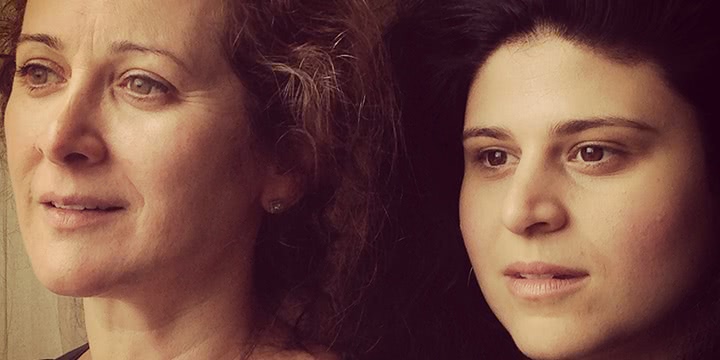If two female soldiers were trapped in a room, awaiting their fate, what would they talk about?
The Old Fitz Theatre’s latest production, Dropped, explores this question as well as the notions of gender stereotypes and memory. In between the dark humour and mélange of pop culture references, audiences will discover what it means to be both a woman and a soldier in a time where the concept is still relatively new. One of the most striking aspects of this piece is its reference to the works of Samuel Beckett, which fans will notice immediately.
“The first page of the play consumed me because of the difference in its style,” says actor Olivia Rose. “It’s like Beckett’s Waiting For Godot in the way that it’s written. The writer, Katy Warner, absolutely adores his writing and there’s all sorts of references we’ve found in the rehearsal room.”
Warner’s direct inspiration for the play also arose in a beautifully simple and utterly human way. “The play came about when Katy was in her kitchen listening to the radio,” Rose explains. “It was in 2011 when the bill was passed by government that decreed that Australian women could fight on the frontline in Afghanistan. She was blown away by that idea and thought, ‘Hang on, I’m a young woman. I could be fighting, and what does this mean for me?’ It really intrigued and plagued her, so she wrote this play as an ode to that thought.”
In addition to the distinctive subject matter, the format of the play itself will be out of the ordinary, which is good news for anyone who is looking for something new and exciting.
“It’s going to be a different theatrical experience for people,” says Rose. “The characters don’t even have names, they’re just A and B, somewhere in the future in some place. That’s literally the direction, although there are clues in the text about where this place is.
“The style might not suit everybody, but I certainly think that you will walk away challenged and changed. It’s such a fine line between being the real woman and the clown, and that’s what this play has shown me – how women get through these scenarios. How do they survive, and what happens afterwards?”
The word ‘soldier’ often has such a mechanical air to it, which this play strives to break down – particularly the stereotypical image of a man. This is perhaps what makes Dropped so challenging and confronting.
“It’s funny; I hadn’t thought about it, but I’m guilty of it,” Rose admits. “When I hear the words ‘solider’ or ‘veteran’ I think of men, and that’s what intrigued me. It’s a very unique and absurdist take on it, but I like the underlying message of exploring two women in a room.
“The audience will get to question and experience what state of waiting these characters are in. They’re not waiting at home with a cup of tea. They’re in the barracks and they’re waiting in a bomb fight they’ve just moved in on.”
There are only roughly 9,000 women serving in the Australian armed services, and they are rarely given a public voice. Beyond what we see on television, we don’t know a great deal about their experiences and how their gender has possibly played a role in that.
“We’ve talked to many women in organisations such as the Women Veterans organisation and they are just so incredible,” says Rose. “The media presents one particular pretty picture of soldiers with make-up, but we need to ask for the real story. Ask what happens when they come home. Of course, that’s not everybody’s experience, but this is a cluster of veterans’ experiences. This play questions the role of a woman as a soldier and a mother, for example.”
The thought also leads into the vast amount of pop culture references in the play. It may seems strange, given the severity of the characters’ circumstances, but what else is there to talk about when mortality is staring you in the face? “It’s interesting when you’re sitting around what you’ll talk about,” laughs Rose. “You talk about recipes and all that random shit to help get you through, it’s bizarre.”
One wonders if Dropped could have as big an impact on its audience if the characters’ genders were reversed.
“I can’t see this play being done by men,” Rose replies. “It could, but I don’t think it would evoke the same sorts of questions, fears, or concern any preconceived notions by society about what it’s like to be a female soldier. Sure, men are fathers too, but there is something very discordant about a woman holding a baby and a woman holding a machine gun.”
Memory, truth and morality are also prominent themes throughout the play. How do both soldiers contend with what their job asks of them? How do we as an audience feel about both the horrors of war but also those who sacrifice their lives in service?
“There’s so much repetition in the play and one of the most used words is ‘remember?’ with a question mark,” says Rose. “So it asks what you remember, what you forget, what’s real and what’s not. One of my favourite lines that my character says is, ‘We’re helping them, saving them. Aren’t we? Aren’t we?’ It’s questioning the whole moral justification of it. They’re women trying to defend something greater than themselves. They’re aspirational. Nobody joins an army thinking that they’re doing a bad thing.”
Dropped runs fromTuesday December 8 until Sunday December 20 at theOld Fitz Theatre.
































